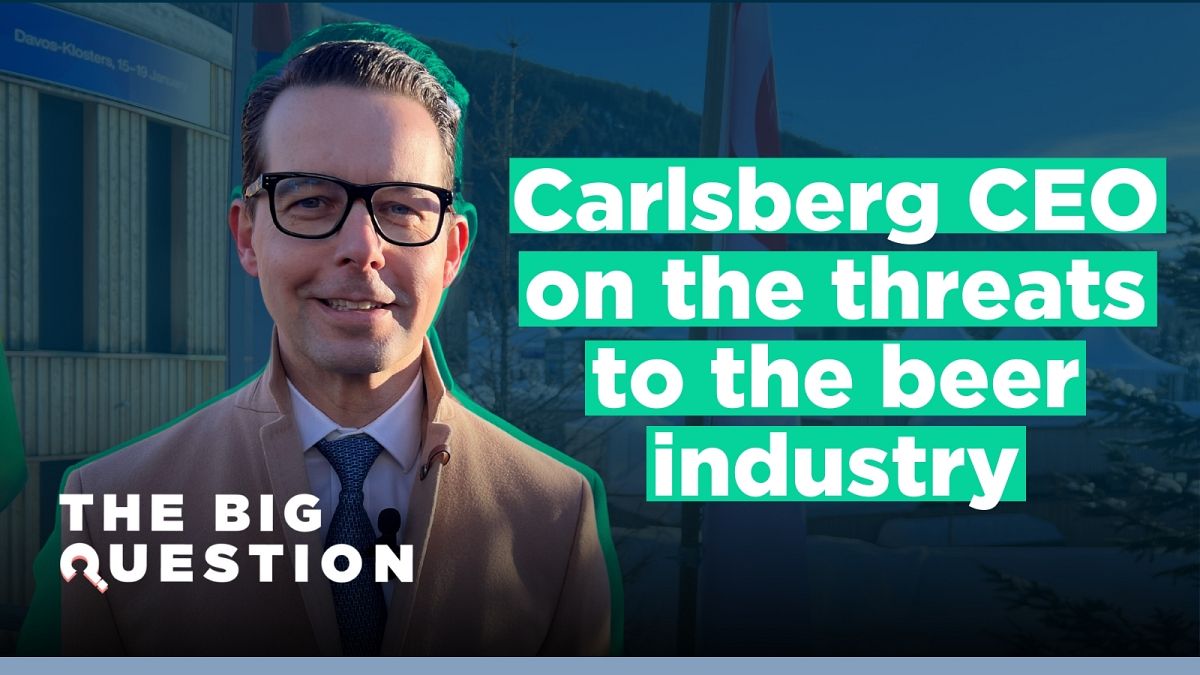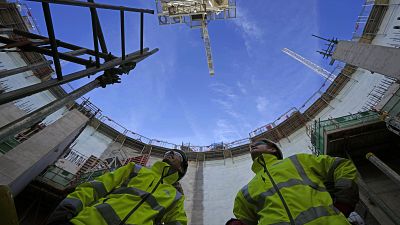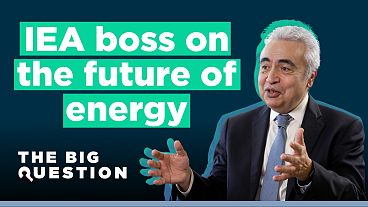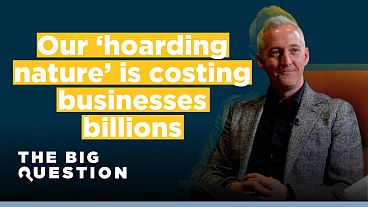Carlsberg’s new CEO, Jacob Aarup-Andersen on how climate change may alter the flavour of your favourite beer and other challenges facing brewers.
Carlsberg is one of the largest brewers in the world, selling more than 125.4 million hectolitres of beer in 2022. That's more than 22 billion pints.
The company own 140 brands and, despite their namesake beer being hugely popular, Tuborg is, in fact, its most successful global brand.
However, with the climate crisis, the rising cost of living and alcohol-free lifestyles becoming more popular, is the beer industry in danger?
In the latest episode of The Big Question, Hannah Brown spoke to the CEO of Carlsberg, Jacob Aarup-Andersen, about the future of the brewing industry.
Could the climate crisis result in a future without beer?
"I don't think we'll get there," Jacob tells The Big Question.
But that's not to say the industry isn't under pressure. Water shortages, crop failures and wildfires are limiting the supply of the three key ingredients in beer - water, barley and hops.
Hops are a particularly sensitive ingredient - grow the same variety in different soil and different weather conditions and you'll get a totally different flavour. This means that as key hop growing countries heat up, we could lose that flavour forever.
We asked Jacob if this means some of our favourite beer might change in flavour. "I think there is a chance that they will change in flavour, but not a lot," he replies.
"You can see the work we do in our research labs to make sure that, one, we can create more climate resistant hops but it's also around how do we mimic some of the features of hops in a sustainable way, but more synthetic ways so we can mitigate this?"
The company's also working hard to reduce its water consumption. Small craft breweries sometimes use up to eight litres of water per one litre of beer produced. Large industrial brewers like Carlsberg have the capacity to use much less water.
Already Carlsberg has cut water usage by 30% to an average of 2.5 litres of water per litre of beer - some of the most efficient brewing in the world - and is investing large amounts of money to streamline the process further.
"Our target is to go down to two and in areas with water risk, our target is to go down to 1.7 to make sure that we are helping the ecosystem and the biodiversity around our breweries," Jacob explains.
Its most efficient breweries so far are operating at around 1.4 litres of water but, with more than 80 breweries globally, Jacob says bringing them all down will take some time.
How is Carlsberg managing the polycrisis?
According to Jacob, the volume of beer Carlsberg is selling in Europe is not increasing, in fact it's a little down. However, there is a clear premiumisation trend.
"People are spending more money on less beer," he explains.
"They are willing to spend a little bit more to get a higher quality brand."
The trend for zero per cent alcohol is also not affecting Carlsberg's revenue. In fact, the company has launched more than 60 alcohol-free beers globally over the past two years.
What does the future hold for Carlsberg?
Jacob seems optimistic about the future of Carlsberg. Alcohol-free is expected to continue to be a big growth driver in Europe - the company has set itself the target that 35% of its total beer sales should be low or no alcohol by 2030.
Asia continues to be a big growth market, where the volume of beer sold is building year on year, in comparison with Europe, where a more mature market means volume growth is very minimal.
In Europe, the product focus is also slowly moving away from beer. Although Jacob insists beer will still be a significant proportion of their business, there's also a rising customer demand for what the company calls "beyond beer".
"Beyond beer is your hard seltzers, your ciders, these types of drinks. And we are moving into hybrids between beer and other drinks.
"There is an emerging consumer trend in terms of wanting to experiment more into more innovative brews, etc. For us, it's important that we can deliver for the consumer choice."
The Big Question is a series from Euronews Business where we sit down with industry leaders and experts to discuss some of the most important topics on today’s agenda.
Watch the full episode above to learn more about the future of the beer industry.



